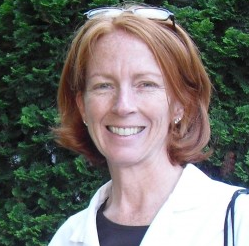Science Fair – What Will the Judge Ask Me?
Dr, Maille Lyons, The Science Fair Coach
Part III: What will the judge ask me?
Some judges will be judging their first science fair, while others will have judged several fairs at varying levels. Nevertheless there are many common questions and, the more you have thought about them, the better your interview experience will be.
20 Questions you should expect include:
- Where did you get this idea?
- How did you come up with this title?
- What research did you do?
- What was your hypothesis?
- Why did you think that would happen?
- What were your independent and dependent variables?
- What was your control?
- What did you measure and how?
- How did you calculate that result?
- Why did you choose that amount, (or measurement, or piece of equipment, etc.)?
- How did you replicate the experiment?
- What does that graph tell you?
- How variable were your results and what might explain the variability?
- What did you base that conclusion on?
- Why/How are your findings important?
- Who might want to know this information?
- What would be the next experiment you would do?
- What was the hardest part (or most fun, or most exciting, or most surprising, etc.)?
- Who helped you?
- If you had to do it all over again, is there anything you would do differently?
About Dr. Maille Lyons
 My name is Maille, which is Gaelic and pronounced “Molly”. I won my first science fair in 6th grade at Joseph Case Junior High School in Swansea, Massachusetts. My project was called “The effect of acid rain on house plants”. As luck would have it my science teacher (Mr. Fonseca) was also my soccer coach. I loved doing projects and did a science fair project every year (required or not) up through my senior year. I enjoyed it so much, that I eventually pursued a career in science and now get to do the grown-up equivalent of science fair projects almost every day. Today I am environmental microbiologist specializing in aquatic bacteria (which means I can only respond to posts at night and on week-ends). I have a Bachelor of Science Degree in Biology from the University of Massachusetts (UMD), a Master’s Degree in Biology from University of California, Los Angeles (UCLA), a post-graduate certification in Epidemiology and Biostatistics from Drexel, and a Ph.D. in Oceanography from the University of Connecticut (UCONN).
My name is Maille, which is Gaelic and pronounced “Molly”. I won my first science fair in 6th grade at Joseph Case Junior High School in Swansea, Massachusetts. My project was called “The effect of acid rain on house plants”. As luck would have it my science teacher (Mr. Fonseca) was also my soccer coach. I loved doing projects and did a science fair project every year (required or not) up through my senior year. I enjoyed it so much, that I eventually pursued a career in science and now get to do the grown-up equivalent of science fair projects almost every day. Today I am environmental microbiologist specializing in aquatic bacteria (which means I can only respond to posts at night and on week-ends). I have a Bachelor of Science Degree in Biology from the University of Massachusetts (UMD), a Master’s Degree in Biology from University of California, Los Angeles (UCLA), a post-graduate certification in Epidemiology and Biostatistics from Drexel, and a Ph.D. in Oceanography from the University of Connecticut (UCONN).
Dr. Lyons shares science fair tips, tricks and advice on her blog, Science Fair Coach.





hi. im doing a science fair
Thanks so much for this list! I homeschool my five children and we do the science fair every year (voluntarily). I’m a writer and was an English major in college, so I’m enjoying the chance to relive the curiosity and discovery through the kids’ projects. This year, we’re testing whether aromatherapy works (measuring HR before and after smelling essential oils), studying whether siblings share fingerprint patterns, and reporting on what the scientific community has to say about the safety of GMOs (review of all studies). Your list is great and we’re using it to prepare for the judging tomorrow afternoon. Wish them luck!
Thank you! This help me soooo much!
Hi! I was wondering if you could help me with something? So this year I will be participating in my very first science fair. I am thirteen years old and until last year I had no clue how science fairs even worked. It would be really helpful if you could give me a few hints and suggestions about how to choose my topic, what I should include on my poster board , how I will be marked and other things like that. Thank You!
Can I simply say what a reduction to find somebody who actually knows what theyre speaking about on the internet. You definitely know the best way to bring an issue to gentle and make it important. More people need to read this and perceive this side of the story. I cant believe youre not more common since you definitely have the gift.
Another issue is that video games usually are serious as the name indicated with the main focus on understanding rather than fun. Although, it has an entertainment part to keep your young ones engaged, each and every game is often designed to focus on a specific set of skills or curriculum, such as numbers or research. Thanks for your post.